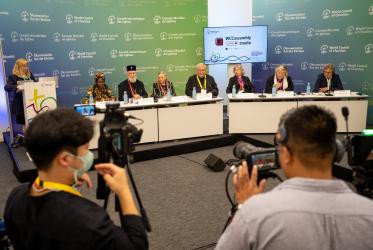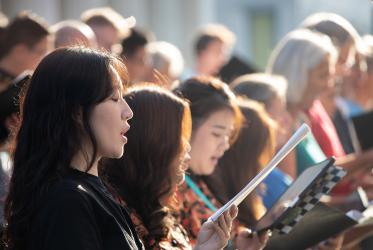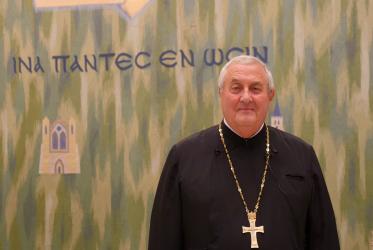Displaying 1 - 20 of 20
Ukraine: Responding to humanitarian need
08 September 2022
God’s Creation is celebrated in a gathering of waters
01 September 2022
WCC general secretary visits Head of Russian Orthodox Church
30 January 2019
Patriarch Kirill meets with Ecumenical Patriarch
07 September 2018
Study group focuses on moral discernment in churches
04 August 2016
Building peace in solidarity with the poor
12 September 2011
June 2005
20 May 2005
December 2004
23 November 2004












